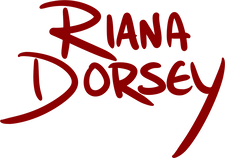Office workers clock out at the end of the day. You should, too.
Read the intro to the "Work From Home Tips" series here.
It took a year into my career to start telling my peers that "I would give up my left leg" for some time off of work. Less than two years later, I burnt out pretty badly, and it took a good year to recover.
What happened? I was in the "Do what you love and you never stop working" phase of my dream job. Most days I spent time Monday through Friday working on freelance work, only to work on my webcomic on the weekend. I did my best to not do any work on Sundays, but there's a certain energy when your home is also your place of work. The way I saw it, it's not that I worked at home, but I lived at my place of work. There was no boundary between work and leisure time.
Around the time I burnt out, I distinctly remember reading tweets from fellow comic artists who had day jobs and did comics on the side. They couldn't wait leave work to go home and make comics. As a career comic artist, one would think my reaction would be pity. Instead, I was jealous. The opportunity to leave a place of work behind to go home and not worry about work for the rest of the day--and on weekends (!)--seemed like a dream.
Of course, it didn't have to be a dream. I just had to set up boundaries. I had to adapt the concept of clocking in and out of the office to a home office setting. The luxury here is that this concept can be extremely flexible. After all, when you work from home, you're your own boss. That being said, finding out what works requires a ton of trial and error.
Many people who work from home maintain a regular 9 - 5 workday. The second 9 o'clock rolls around, they must be at their desk working. Once noon hits, it's time for lunch. There are probably a couple of 10 minute breaks in the day, but once 5 o'clock hits, progress is saved and work is done for the day. On Friday afternoon, work isn't revisited until Monday at 9, sharp. Whatever your daily schedule is, when the time has come to stop working, you stop working. No ifs, ands, or buts. We'll discuss schedules, time management, and what to do when a deadline is looming in the next post.
The work day is over. You're free to do as you please! So now what? If you're not already out of the office, leave--at least your desk or general area, if your living situation allows. I understand that this can be difficult, especially with social media and YouTube videos calling your name. However, ending the day in my opinion not only comes with time, but in physical space. Go to a place you associate with free time. For me, this is my living room, my backyard, or my painting desk in the office. The more time away from the desk during your time off, the better. I think it's even fine to come back to the work space after doing something else, it just has to happen after your mind and body understands that the work day is over.
If you're like me, finding things to do in your free time is difficult. The urge to work is strong, and it's always on the mind. I touched upon this dilemma for myself in this post about how I discovered painting to be my favorite free time activity. As I said earlier in this post, my webcomic was my free time activity for a very, very long time. However, this was extremely flawed, because I did comics for my day job. Yes, there is something magical about making your own work, but essentially I was doing the same thing. The good news is that, at the time, I made enough on my webcomic to incorporate it into my regular work hours, and it has remained since. However, even if I wasn't being paid, I would still treat my webcomic as my job, since it requires a regular schedule.
If you already have a favorite activity that has little to do with work, you're already way ahead! If not, as I said in the post, look into your interests. If they take you outdoors, even better.
Working from home is an endless experiment, and hopefully these tips have been giving you ideas on how to improve your work life.
Read the intro to the "Work From Home Tips" series here.
It took a year into my career to start telling my peers that "I would give up my left leg" for some time off of work. Less than two years later, I burnt out pretty badly, and it took a good year to recover.
What happened? I was in the "Do what you love and you never stop working" phase of my dream job. Most days I spent time Monday through Friday working on freelance work, only to work on my webcomic on the weekend. I did my best to not do any work on Sundays, but there's a certain energy when your home is also your place of work. The way I saw it, it's not that I worked at home, but I lived at my place of work. There was no boundary between work and leisure time.
Around the time I burnt out, I distinctly remember reading tweets from fellow comic artists who had day jobs and did comics on the side. They couldn't wait leave work to go home and make comics. As a career comic artist, one would think my reaction would be pity. Instead, I was jealous. The opportunity to leave a place of work behind to go home and not worry about work for the rest of the day--and on weekends (!)--seemed like a dream.
Of course, it didn't have to be a dream. I just had to set up boundaries. I had to adapt the concept of clocking in and out of the office to a home office setting. The luxury here is that this concept can be extremely flexible. After all, when you work from home, you're your own boss. That being said, finding out what works requires a ton of trial and error.
Many people who work from home maintain a regular 9 - 5 workday. The second 9 o'clock rolls around, they must be at their desk working. Once noon hits, it's time for lunch. There are probably a couple of 10 minute breaks in the day, but once 5 o'clock hits, progress is saved and work is done for the day. On Friday afternoon, work isn't revisited until Monday at 9, sharp. Whatever your daily schedule is, when the time has come to stop working, you stop working. No ifs, ands, or buts. We'll discuss schedules, time management, and what to do when a deadline is looming in the next post.
The work day is over. You're free to do as you please! So now what? If you're not already out of the office, leave--at least your desk or general area, if your living situation allows. I understand that this can be difficult, especially with social media and YouTube videos calling your name. However, ending the day in my opinion not only comes with time, but in physical space. Go to a place you associate with free time. For me, this is my living room, my backyard, or my painting desk in the office. The more time away from the desk during your time off, the better. I think it's even fine to come back to the work space after doing something else, it just has to happen after your mind and body understands that the work day is over.
If you're like me, finding things to do in your free time is difficult. The urge to work is strong, and it's always on the mind. I touched upon this dilemma for myself in this post about how I discovered painting to be my favorite free time activity. As I said earlier in this post, my webcomic was my free time activity for a very, very long time. However, this was extremely flawed, because I did comics for my day job. Yes, there is something magical about making your own work, but essentially I was doing the same thing. The good news is that, at the time, I made enough on my webcomic to incorporate it into my regular work hours, and it has remained since. However, even if I wasn't being paid, I would still treat my webcomic as my job, since it requires a regular schedule.
If you already have a favorite activity that has little to do with work, you're already way ahead! If not, as I said in the post, look into your interests. If they take you outdoors, even better.
Working from home is an endless experiment, and hopefully these tips have been giving you ideas on how to improve your work life.


 RSS Feed
RSS Feed